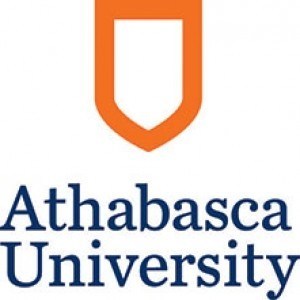Photos of university / #mcgillu
The Bachelor of Arts in Earth and Planetary Sciences at McGill University offers students a comprehensive multidisciplinary education designed to explore the complex processes shaping our planet and the broader solar system. This program provides a broad scientific foundation in geology, geophysics, atmospheric sciences, oceanography, and planetary science, allowing students to understand Earth’s history, structure, and dynamics as well as the geological features of other planets. Students will engage with a diverse curriculum that emphasizes critical thinking, analytical skills, and hands-on laboratory and fieldwork experiences, preparing them for careers in research, environmental management, resource exploration, and science communication. The program combines theoretical coursework with practical application, fostering an interdisciplinary approach vital to tackling contemporary issues such as climate change, natural hazards, and sustainable resource management. Undergraduates will have access to state-of-the-art laboratories and research facilities, including McGill’s advanced geological and atmospheric laboratories. Throughout their studies, students are encouraged to participate in research projects, internships, and field trips that enhance their understanding of Earth systems and planetary processes. The program also emphasizes developing skills in data analysis, computer modeling, and scientific communication, equipping graduates to contribute effectively to scientific research, policy development, and education. With a focus on fostering critical inquiry and innovation, the Bachelor of Arts in Earth and Planetary Sciences prepares students for advanced study or careers in academia, industry, and government agencies dedicated to earth sciences and planetary exploration. Graduates will emerge with a solid understanding of Earth's physical properties, geological history, and the interconnected processes that sustain life on our planet and beyond.
The Bachelor of Arts with a Liberal Program in Earth and Planetary Sciences at McGill University offers students a comprehensive foundation in the fundamental principles that govern the Earth and its planetary system. Designed for those interested in exploring the physical aspects of our planet and beyond, this program combines rigorous coursework in geology, geophysics, atmospheric sciences, oceanography, and planetary sciences. Students will develop critical analytical skills, scientific literacy, and a deep understanding of Earth's processes, materials, and environmental challenges. The curriculum emphasizes interdisciplinary learning, integrating concepts from physics, chemistry, biology, and environmental science to provide a well-rounded perspective on Earth's history, structure, and dynamic systems. Alongside core courses, students have opportunities to engage in research projects, fieldwork, and laboratory experiments, fostering practical skills and hands-on experience. The program encourages inquiry into current issues such as climate change, natural resource management, and planetary exploration. With flexible electives, students can tailor their educational path to suit interests in specific areas like paleontology, volcanology, seismology, or planetary geology. The program prepares graduates for careers in research, environmental consulting, science communication, and further studies in Earth sciences or related fields. Additionally, students gain valuable skills in critical thinking, data analysis, and scientific communication, positioning them well for diverse professional opportunities in academia, industry, and government agencies dedicated to understanding and protecting our planet. The Bachelor of Arts in this liberal arts approach emphasizes broad intellectual development alongside scientific expertise, fostering versatile graduates capable of addressing complex environmental and planetary challenges with both scientific knowledge and ethical awareness.
The Bachelor of Arts or Bachelor of Science in Earth and Planetary Sciences at McGill University requires students to complete a total of 90 to 120 credit hours, depending on the specific program and courses chosen. Students must fulfill both core and elective course requirements, including foundational courses in geology, planetary sciences, and related disciplines. The program typically begins with introductory courses such as GEOL 102 - Earth and Planetary Systems, which provides an overview of Earth's structure, processes, and history, or equivalent courses in planetary sciences. Students are then encouraged to select advanced courses in mineralogy, petrology, structural geology, geophysics, geochemistry, and planetary geology to deepen their understanding. Laboratory work and field studies are integral components, fostering practical skills in sample collection, analysis, and data interpretation. The program emphasizes developing quantitative skills through courses involving data analysis, modeling, and computational methods. Students are required to undertake a senior research project or thesis, which involves original research under faculty supervision, culminating in a written report and presentation. Elective courses allow students to explore related disciplines such as environmental science, oceanography, atmospheric sciences, and interdisciplinary approaches to Earth systems. To graduate, students must meet specific GPA thresholds, typically maintaining a minimum in core courses and overall program performance. The program also encourages internships and experiential learning opportunities to prepare students for careers in research, industry, or academia. Throughout their studies, students are advised to consult academic advisors regularly to ensure the fulfillment of all program requirements and to plan coursework aligned with their career goals.
Financing studies for the Liberal Program in Earth and Planetary Sciences at McGill University are primarily structured around tuition fees, scholarships, bursaries, and financial aid options available to both domestic and international students. Tuition fees are set annually and vary depending on the student’s residency status, with Canadian residents generally paying lower fees compared to international students. For the current academic year, undergraduate tuition for Canadian students typically ranges from approximately CAD 7,000 to CAD 10,000 per year, while international students may expect fees in the range of CAD 25,000 to CAD 30,000 annually. These costs cover coursework, access to facilities, and certain academic resources.
In addition to tuition, students should account for incidental fees, including student services, health and dental insurance, and laboratory or materials fees, which can add several thousand dollars to the overall cost of studies. McGill University offers a range of financial aid options to mitigate these expenses. Merit-based scholarships are awarded based on academic achievement and may cover partial or full tuition costs for outstanding students. These scholarships are competitive and require a separate application process. Bursaries and need-based grants are also available to students demonstrating financial need, providing essential support to help cover tuition and living expenses.
Graduate students and those enrolled in specific professional programs may have access to different funding sources, including research assistantships, teaching assistantships, and external grants. Undergraduate students are encouraged to explore federal and provincial student loan programs designed to support post-secondary education. McGill’s Financial Aid Office provides comprehensive guidance on applying for these loans and scholarships, as well as budgeting for the overall cost of studies.
Part-time work opportunities on or near campus are another avenue for students to earn income during their studies. The university’s Career Planning Service offers resources and advice for securing part-time employment, which can help offset living costs. Overall, the financing landscape at McGill University aims to support students from diverse economic backgrounds, ensuring access to quality education in Earth and Planetary Sciences through a combination of institutional aid, external funding, and personal planning.
The Liberal Program in Earth and Planetary Sciences at McGill University offers students a comprehensive foundation in the fundamental principles governing the Earth’s systems. This program is designed to provide a broad understanding of geology, planetary sciences, geophysics, geochemistry, and environmental science, equipping students with both theoretical knowledge and practical skills necessary for careers in research, environmental management, or further specialized studies. The curriculum emphasizes interdisciplinary approaches, integrating aspects of physics, chemistry, biology, and mathematics to analyze Earth's processes and structure. Through a combination of lectures, laboratory work, and field studies, students gain hands-on experience in data collection, analysis, and interpretation. The program also encourages critical thinking and problem-solving skills essential for addressing complex geological and planetary issues, such as climate change, natural resource management, and planetary exploration. Students can tailor their education via electives and specialized courses, allowing for academic exploration aligned with their career goals. The program prepares graduates for various professional pathways, including research institutions, government agencies, environmental consulting firms, and educational institutions, or for advanced graduate studies. McGill’s emphasis on research-led teaching, access to advanced laboratories, and collaborative projects provides an enriching academic environment. Additionally, students benefit from McGill’s strong links with industry and research organizations, facilitating internships, networking opportunities, and practical experiences that enhance employability. The program’s curriculum is periodically reviewed to ensure it remains current with technological advances and emerging scientific challenges in Earth and planetary sciences. Overall, the Liberal Program in Earth and Planetary Sciences aims to cultivate a well-rounded scientific perspective and foster a lifelong passion for exploring and understanding the dynamic Earth and its place in the universe.


